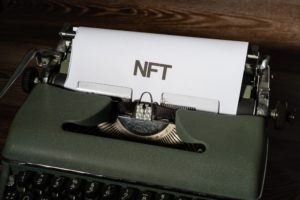NFTs are tokens that represent ownership of any asset considered unique. Blockchain networks like Ethereum, Cardano, or Solana protect the ownership of this unique asset so that no one can change the ownership record of an NFT.
 NFT is the acronym for Non-Fungible Token. These tokens represent ownership of any asset considered unique. NFTs are therefore regarded as economic goods as they represent any asset, whether tangible, such as a table, a computer, or a chair, or intangible, e.g., a digital music file, a digital collectible for a video game, or even your own identity. These tangible or intangible assets may have unique characteristics that make them non-exchangeable for other things. Blockchain networks like Ethereum, Cardano, or Solana protect the ownership of this unique asset so that no one can change the ownership record of an NFT.
NFT is the acronym for Non-Fungible Token. These tokens represent ownership of any asset considered unique. NFTs are therefore regarded as economic goods as they represent any asset, whether tangible, such as a table, a computer, or a chair, or intangible, e.g., a digital music file, a digital collectible for a video game, or even your own identity. These tangible or intangible assets may have unique characteristics that make them non-exchangeable for other things. Blockchain networks like Ethereum, Cardano, or Solana protect the ownership of this unique asset so that no one can change the ownership record of an NFT.
Fungible items are objects we can trade because the market or individuals define a value rather than their unique characteristics. For example, euros or dollars are fungible for €1 EUR / $1 USD, and we can exchange them for another €1 EUR / $1 USD.
Within the characteristics of NFTs, we have:
- NFTs are digitally unique. Two NFTs cannot be the same.
- Each NFT must have an owner. The property is a public record and easily verified by all.
- NFTs are compatible with blockchain networks. We can exchange n NFT for cryptos such as Bitcoin, Ether, ADA, or SOL.
- Content creators can sell their work anywhere and access a global marketplace.
- Content creators can retain ownership rights to their content and directly claim royalties from those who use them.
- We can use NFT as collateral for loans.
Every time everything becomes more digital, it is required to replicate the ownership of physical assets. Blockchain networks and NFTs solve this problem, especially for scarce, unique objects for which proof of ownership is required. For example, a degree certificate, an essay, or a ticket that gives you access to an event.


